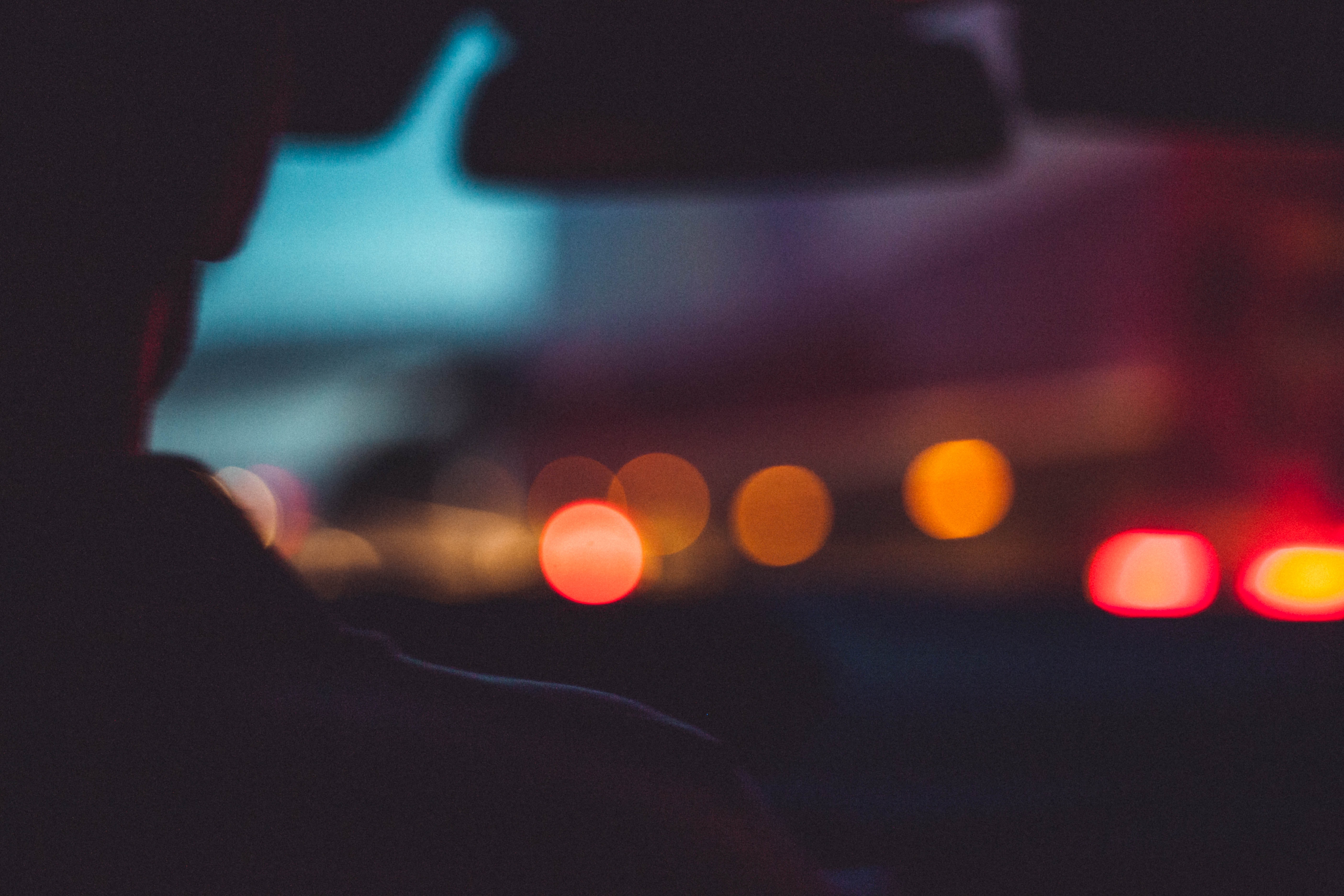Can UK learner drivers drive at night?
17/08/2020
Learner drivers holding a provisional license may drive at night so long as they are suitably supervised. Driving at night brings its own set of distinct challenges and can be quite daunting. This may be one of the reasons why learner drivers may assume they are not allowed to drive at night until they have a full license.
However, having some lessons at night can be good preparation for when you do pass your driving test. A high percentage of road fatalities occur after dark, so any time spent driving at night while learning can help better prepare you for the different conditions experienced at this time of day. Those who have driving lessons after a working day may find they will automatically be learning after dark anyway, particularly during the shorter winter days.

Requirements for Night Time Driving
Learner drivers must not practice unaccompanied. The majority of driving schools or qualified instructors will offer after dark lessons. Providing you have a provisional license you just need to book a lesson. However, if you want to practice outside of your official lessons you must still have supervision. Whether it is a friend or a family member who accompanies you the following must apply:
- They should be over 21 years old
- Have 3 years of driving experience
- Are qualified to drive the car being used for practice
If you are using a car belonging to a qualified instructor or driving school then you will be covered under their insurance policy. If you practice in your own car or one belonging to someone who is supervising you, then you will need to arrange the appropriate insurance. This may involve the supervisor having to take out an additional clause to cover learner drivers if it is not included in their policy. Always check the terms and conditions of any insurance policy, as some exclude learner drivers at night and some require a supervisor to be over 25 years old.
The Additional Issues Posed by Night Time Driving
Driving after dark introduces a number of different variables which requires practice to become comfortable with, allowing you to become a more confident night-time driver. One of the primary issues is the reduced visibility at night. The physical shapes of cars which you see in the day are reduced to headlights and tail lights, giving driving a different dynamic. It is another set of parameters on which to adjust your focus and attention. Similarly, distances between vehicles become harder to judge, as does the assessment of the speed of other cars.
Further issues to adjust to when learning to drive at night are road markings and road signs. During the day these are usually clear and easy to read. At night they will often appear fainter, making them harder to pick up on. When learning to drive at night you will need to get used to using cats eyes to help see the line of the road ahead, while also adapting to the lights of oncoming cars and how this can affect visibility.
After Dark Driving
There are a number of ways learner drivers can prepare themselves when approaching night time driving. Reduced visibility is the prime issue at night, so ensuring headlights, mirrors and windscreens are clean is essential. Check all lights work properly before setting out and that you are aware how to use your headlights in traffic. As perception is also affected at night you should drive a little slower and leave a little extra space between you and the vehicle ahead.
Tiredness kills, so make sure you are fully rested before heading out. If you are tired or drowsy do not practice just because that was the plan. Instead re-arrange for another night. For similar safety reasons you should minimise all potential distractions. When learning to drive at night both you and your supervisor should turn off your phones or at least put them somewhere which reduces the temptation to keep looking at them. Your supervisor must approach the drive as a lesson and minimise idle chit-chat, while similarly keeping the radio on a low volume.
While learning to drive at night can seem daunting at first, with practice it can be highly beneficial. Driving in the dark for the first time without supervision when you have recently passed your driving test can be an unpleasant surprise if you have had no prior experience. Whoever is supervising you, make sure any vehicle you are practising night time driving in is displaying L-Plates and you have the correct insurance in place. If your lessons with a qualified instructor are always in the day you may want to consider enquiring about the possibility of some night time lessons too.
